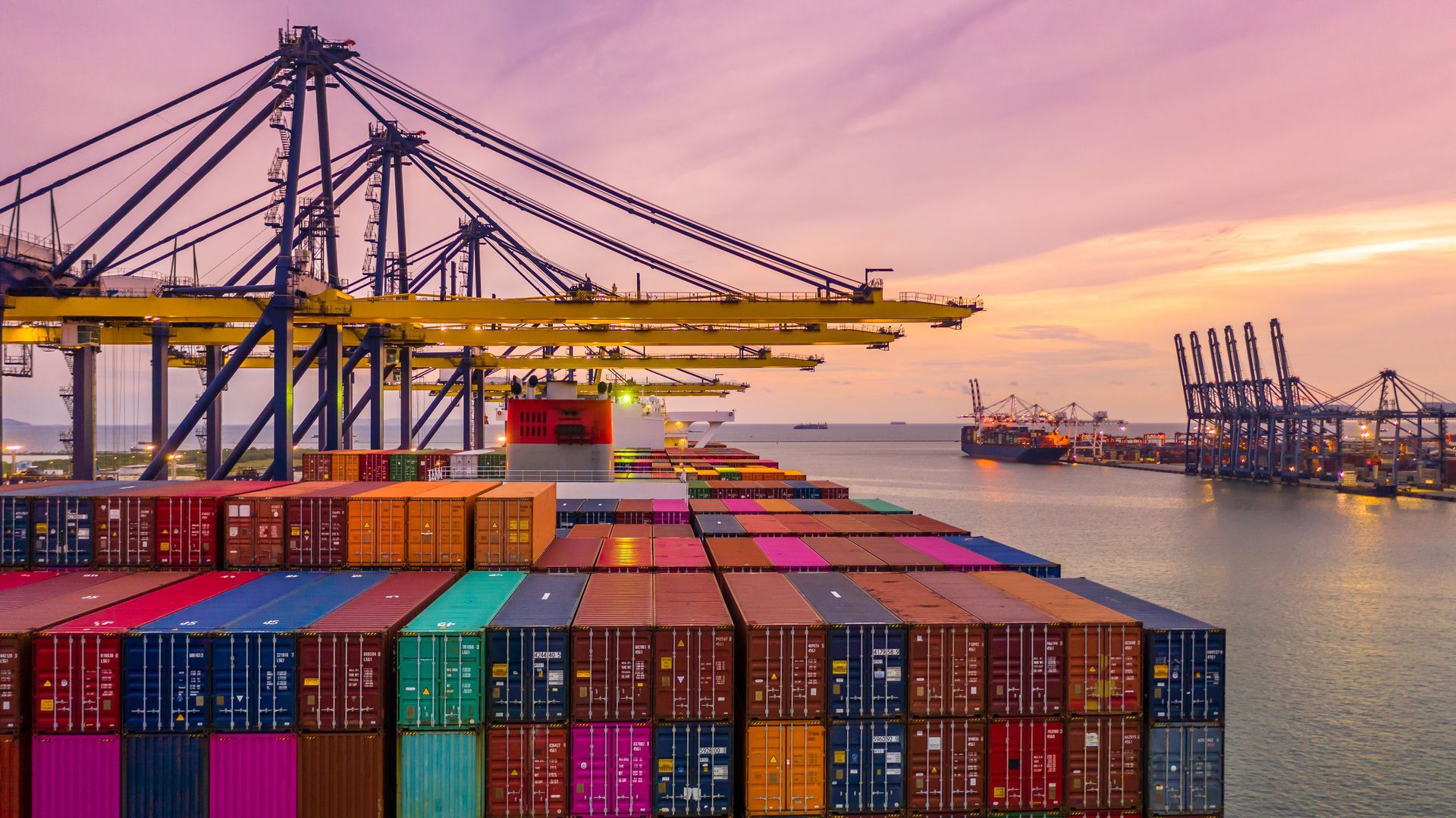Supplies Made Simple™: Talk to our Sales Team today!
The Impact of Global Trade Policies on Supply Chains
The Impact of Global Trade Policies on Supply Chains

Global commerce significantly impacts supply chain efficiency across all industries today. Reliable and timely supply chains are essential for delivering goods and services effectively. Supply chain managers must navigate the complexities of export limits, tariffs, and trade regulations that influence their operations. Understanding international trade laws is crucial for managing supply chains, as these regulations affect the flow of commodities across borders.
This, in turn, impacts prices, availability, and compliance requirements. Failing to address these complexities can lead to delays, increased costs, and supply chain disruptions across various sectors. This article explores the
primary trade regulations affecting supply chains and provides solutions to common challenges.
Overview of Global Trade Policies
Global trade policy governs the exchange of goods and services across borders, shaping international trade dynamics. It can either facilitate or hinder the movement of products, affecting all industries. Trade barriers and easing measures directly influence the availability of essential items.
For instance, the World Trade Organization (WTO) aims to promote fair global trade, but member countries can still impose tariffs and restrictions under certain circumstances. Regional agreements like the Trans-Pacific Partnership (TPP) and the United States-Mexico-Canada Agreement (USMCA) can benefit specific industries by reducing or eliminating tariffs, expediting approvals, or establishing common standards.
Each agreement utilizes tariffs, quotas, and other barriers to shape international trade. These policies affect not only the availability and cost of goods but also cross-border trade and legal requirements for companies. Therefore, businesses with global supply chains must stay informed about these regulations.
Unique Challenges Across Various Supply Chains

Supply chains in different sectors face unique challenges that must be managed effectively. A significant concern is the need for timely and reliable delivery of goods, whether they are consumer products, industrial components, or essential medical supplies. Delays in any industry can have serious repercussions.
The COVID-19 pandemic illustrated how global disruptions can lead to shortages in essential materials, highlighting vulnerabilities in supply chains across sectors. Additionally, industries must navigate complex regulations, which can include safety standards, import/export laws, and compliance requirements. These complexities require heightened flexibility, planning, and precision in supply chain management.
Key Trade Policies Impacting Supply Chains
Global trade rules have far-reaching implications for product access and costs, impacting supply chains across industries. Key areas of influence include:
- Tariffs: Import duties on various goods can significantly raise costs. For example, a 10% tariff on raw materials can increase production costs, ultimately affecting consumers.
- Export Restrictions: Global crises often lead to export bans. For instance, during the COVID-19 pandemic, many countries restricted the export of critical supplies to prioritize local needs, leading to shortages across the globe.
- Free Trade Agreements: An example of a trade agreement is like the USMCA and EU treaties used to reduce tariffs and streamline regulations, facilitating smoother cross-border transactions. Industries that rely heavily on global supply chains, such as manufacturing and technology, benefit greatly from these agreements.
Understanding these trade rules is essential, as
they affect not only prices and availability but also compliance with varying national standards.
Navigating Uncertainty: Supply Chain Resilience

For any organization to have a resilient supply chain they must adopt strategic measures. Key strategies include:
- Diversifying Suppliers: Reducing dependence on a single source can mitigate risks from local disruptions, trade disputes, or geopolitical tensions.
- Nearshoring: Moving production closer to key markets can cut shipping times and minimize delays associated with international borders. For instance, a manufacturer targeting the U.S. market might shift production from overseas to a nearby country to leverage trade benefits.
- Investing in Technology: Tools like real-time tracking, blockchain, and advanced analytics enhance supply chain visibility and control, allowing organizations to adjust sourcing and communicate effectively with partners.
- Inventory Optimization: Balancing supply and demand ensures that businesses have the necessary resources without incurring excess costs.
CHA: A Solution to Your Global Supply Chain Needs
Global trade policies significantly influence supply chains across all industries, affecting availability, cost, and compliance. Organizations must remain adaptable due to the complexities of regulations and the fast-paced nature of global commerce. Understanding tariffs, export restrictions, and trade agreements is crucial for navigating international challenges.
By adopting strategies like supplier diversification, nearshoring, and technological investment, businesses can build resilient supply chains, ensuring a steady flow of essential goods while avoiding delays that could hinder operations.
For more insights on custom procurement and supply chain management solutions, follow our LinkedIn page . Also, be sure to check out our inventory here.












